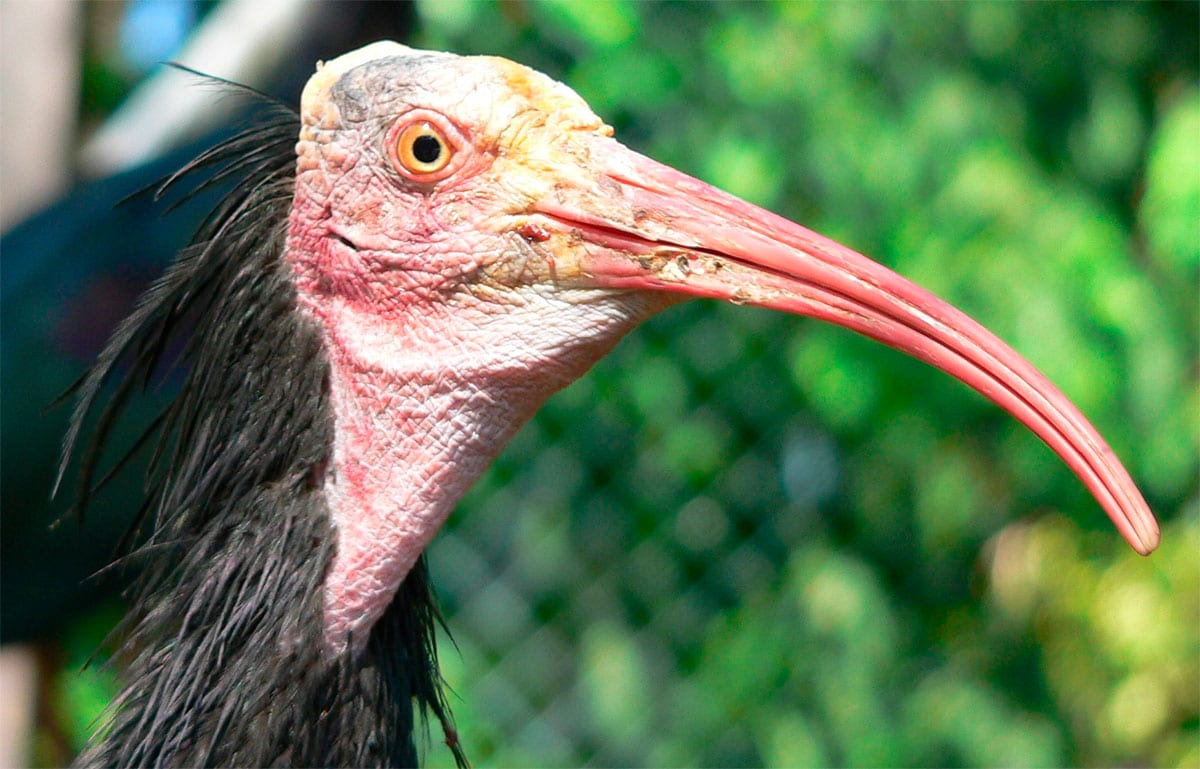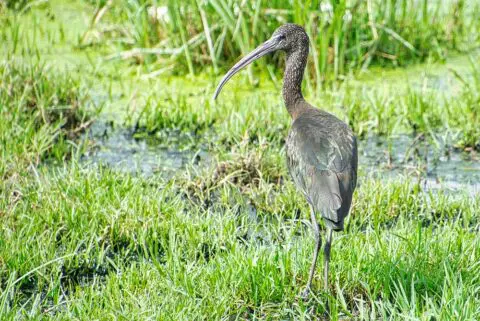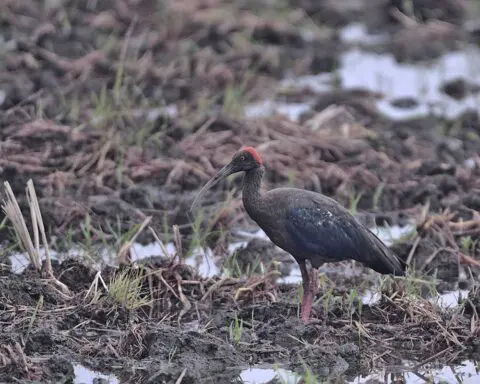Ibis: a sacred egyptian bird
Welcome to our blog about sacred and rare birds! On this occasion, We will enter the fascinating world of the Ibis, a bird that has been considered sacred in Egyptian mythology for millennia. Get ready to discover the physical characteristics and behavior of this majestic bird, as well as its cultural importance in ancient Egyptian civilization. We'll also talk about the threats this iconic bird faces and conservation efforts to protect it.. Join us on this journey full of history, ancient beauty and wisdom!
Introduction to the Ibis
El Ibis, also known as “bird of egypt”, has been revered in Egyptian mythology since time immemorial. Its presence in ancient beliefs and rituals was considered sacred due to its elegance and mystery.. this bird, with its distinctive appearance and unique behavior, has captured the imagination of many civilizations over the centuries.
With its white plumage contrasting with the intense black of its wings and tail, the Ibis is a true visual gem. Its long, curved beak gives it a noble and majestic air.. It's easy to understand why this bird became a symbol of wisdom for the ancient Egyptians..
In addition to the impressive physical appearance of the Ibis, his behavior is also notable. These birds are known for being excellent fishers.; They have the unique ability to detect fish underwater thanks to their sharp claws and incredible sense of balance when walking on the marshy banks..
Regarding your social habits, Ibises are very sociable animals that form large colonies during the reproductive season.. During this time, They build solid nests in trees or cliffs where they lay their white eggs as a sign of hope and rebirth..
The fascination with the Ibis is not limited only to the aesthetics or the unique behavior of this bird.; It also has deep cultural importance in Egypt. In Egyptian mythology, Thoth - lunar god of wisdom and knowledge- was represented with a head
The role of the Ibis in Egyptian mythology
The role of the Ibis in Egyptian mythology
In the ancient and mysterious land of Egypt, The Ibis featured prominently in their rich mythology. This majestic bird was considered sacred and revered by the ancient Egyptians due to its unique characteristics and fascinating behavior..
The Ibis was closely associated with Thoth, the god of wisdom and writing. According to the legends, Thoth took the form of an Ibis to help create the world and teach humans about the divine arts.. This beautiful bird was believed to have magical powers and could predict future events..
The relationship between the Ibis and Thoth also extended to the funerary sphere. In many Egyptian artistic representations, We can see the god accompanied by a white Ibis as he guides the souls of the deceased to the afterlife. This connection to life after death made these birds even more revered by the ancient Egyptians..
In addition to its religious importance, The Ibis also played a practical role in Egyptian society. These birds were considered protective symbols against diseases and insects harmful to crops.. So, on the ground they were spiritually worshiped, They were also valued for their ability to keep pests away..
In conclusion, The role of the Ibis in Egyptian mythology was fundamental. As divine messenger of the god Thoth and symbol of wisdom, the I
Physical characteristics and behavior of the Ibis
Physical characteristics and behavior of the Ibis
The Ibis is a fascinating bird with unique physical characteristics that distinguish it from other birds.. It is ave, also known as the “sacred ibis”, It has a medium size, reaching an average length of about 75 centimeters and a weight of around 1 kilogram.
A notable feature of the Ibis is its long downward curved beak, which it uses to search for food in the swamps and wetlands where it lives.. Its plumage varies between brown and white tones., being darker at the top and lighter at the bottom. It also, Their legs are long and adapted to walking on swampy terrain..
In terms of its behavior, The Ibis is characterized by being a social species that lives in numerous colonies.. These colonies are made up of monogamous pairs that build high nests in trees or bushes near bodies of water..
During the breeding season, Ibises perform ritual displays to court females. These displays include graceful movements of the neck and unfolding of the wings.. Once the couple is formed, Both parents incubate the eggs for approximately three weeks..
Regarding your diet, The Ibis feeds mainly on small fish, crustaceans and aquatic insects. To capture its prey it quickly inserts its long beak underwater and opens it abruptly, catching them with great precision..
The behavior of the Ibis is truly fascinating and its adaptation
Cultural importance of the Ibis in Egypt
El Ibis, also known as the “bird of egypt”, has had significant cultural importance in the history of this ancient civilization. Since ancient times, The Egyptians revered the Ibis and considered it a sacred animal.. Its presence in temples and tombs demonstrates its close relationship with the religious and spiritual life of ancient Egypt..
This bird was associated with Thoth, the god of wisdom and writing in Egyptian mythology. The ancient Egyptians believed that the Ibis possessed divine qualities and could transmit messages between the gods and humans.. For this reason, magical powers were attributed to it and it was used as a symbol of knowledge.
The artistic representation of the Ibis is present in numerous Egyptian works, like wall paintings, sculptures and even funerary amulets. This bird was considered a protector both in life and after death, since it was believed that it would guide souls to the afterlife.
In addition to its religious importance, The Ibis also had a practical function for the ancient Egyptians. These birds were appreciated for their ability to control insect and rodent pests that threatened their crops.. They were allowed to live near agricultural fields to protect the crops.
Today, although it does not have the same cultural relevance that it had in the past, We can still admire the majestic sacred Ibis during our visits to Egypt. Its elegant figure and fascinating history remind us of the cultural wealth
Threats and conservation of the sacred ibis
The sacred ibis, like many other species of birds, faces various threats that endanger its survival. One of the main ones is the loss of habitat due to urbanization and agricultural expansion.. The construction of infrastructure and the drainage of wetlands have also negatively affected these birds..
Another major threat to the sacred ibis is poaching and illegal trafficking of its feathers and eggs.. These are considered valuable items on some black markets., which has led to a significant decline in populations of this species.
But, Significant efforts are being made to protect the sacred Ibis and ensure its conservation. Several international programs are dedicated to captive reproduction and subsequent release in areas suitable for their survival.. Strict measures are also implemented to combat poaching and reduce illegal trade..
It also, Local governments are working together with environmental organizations to protect the natural habitats of the sacred ibis. Nature reserves are established where these birds can live without human disturbances.
It is essential that we all become aware of the importance of preserving our sacred species such as the Hermit Ibis, since they form an integral part of the cultural and historical heritage not only of Egypt but also of the entire world.
In conclusion, The sacred Ibis plays a crucial role in both Egyptian mythology and the ecology of Egypt.




